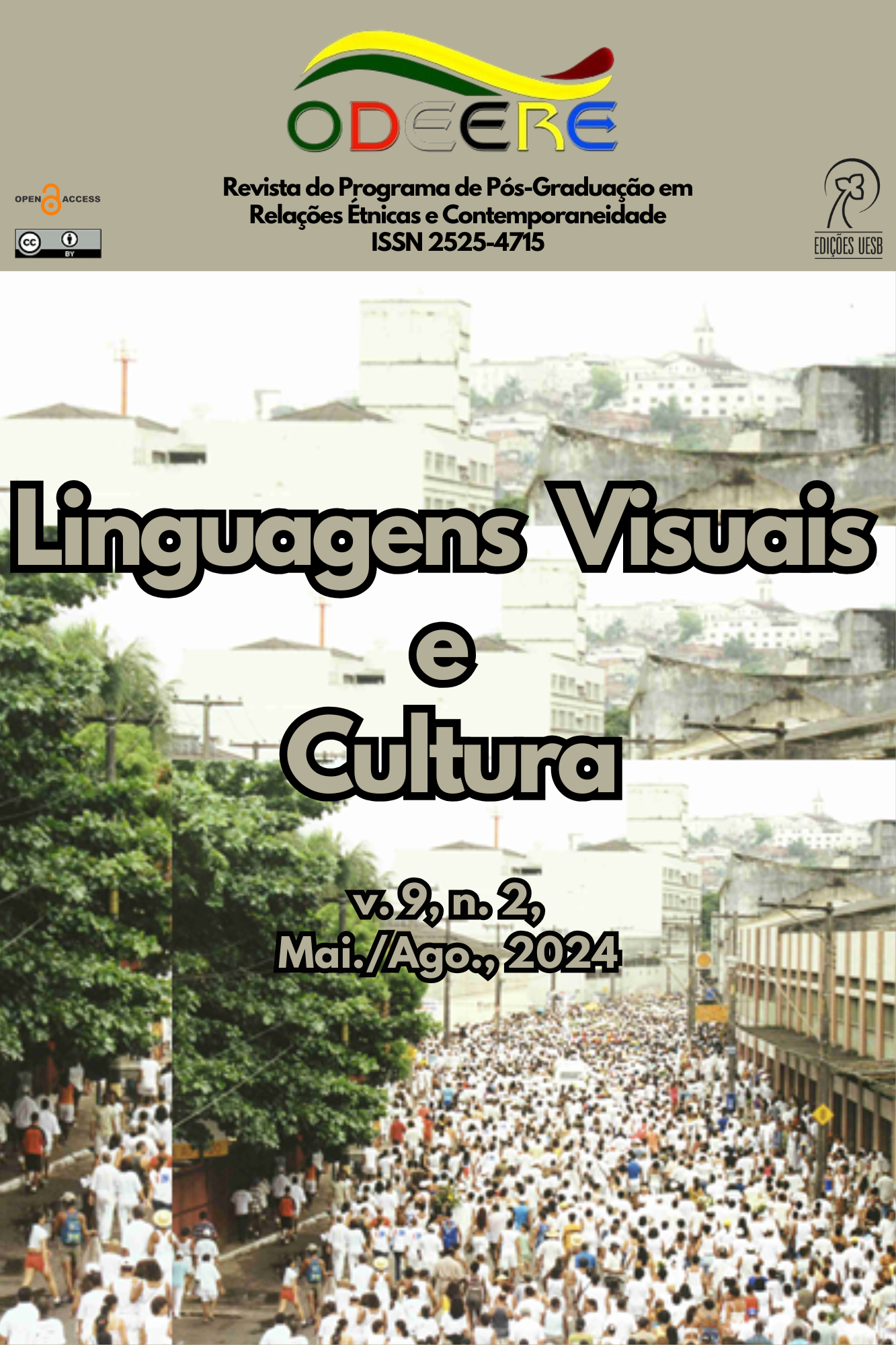Metamorfoses negras: desfazendo sortilégios visuais do mundo ocidental
Keywords:
Black subjects, Efabulations, Images, MtamorphosesAbstract
It reflects on hegemonic visions that, since the first imaginary elaborations of a possible Western world in the fourth century BC, distorted the image of African peoples and supported colonization processes under this aegis of thought. Africa(s), Africans, descendants. There is a world fascinated for millennia by another. This fascinated and imagined world, the West, explored and took over the narrative about several other worlds, faded, erased, reinterpreted by European memory, whether through territorial outlines or historical narrative. The Western thus contrasted with the Eastern, also faded. What are East and West? Just as there is no race, but there is racism, perhaps there are no Wests and Easts, but Westernisms and Orientalisms. It is worth asking: beneath these imaginaries, where is Africa(s), which is located and lost among the elaborate “isms”, in a place contrary to the idea of civilization, of non-West, of non-East, of “a non place"? This imagined Africa bewitches the West and at the same time is metamorphosed by it. The novel The Golden Ass, by the African Apuleius (2nd century AD), will serve as a pretext for reflection on this metamorphosis.
Downloads
References
ARISTÓTELES. Retórica. 2. ed. Lisboa: Biblioteca Nacional, 2005.
BARRETO, Lima. Histórias e sonhos. São Paulo: Brasiliense. 1956.
CAMPOS, Augusto de. Revisão de Kilkerry. São Paulo, Brasiliense, 1985.
CORRÊA, Viriato. Cazuza. São Paulo, Editora Nacional, 1992.
DANTAS, Luiz Carlos da Silva. Francis de Castelnau e o relato de um grupo de
escravos de Salvador da Bahia em 1851 ou do caráter simiesco dos indesejáveis.
REMATE DE MALES, UNICAMP/IEL - Campinas, v. 12, p. 45-55, 1992.
GILROY. Paul. O Atlântico Negro: modernidade e dupla consciência. São Paulo: Ed.
, 2001.
HALL, Stuart. A questão da identidade cultural. Campinas: Unicamp, 1988.
LUCIUS, Apuleius O Asno de Ouro (Metamorfose). Trad.: GUIMARÃES, Ruth. São
Paulo, Cultrix, 1963.
MBEMBE, Achille. Crítica da razão negra. São Paulo: n-1 edições, 2018.
MANARA, Milo. A Metamorfose de Lucius (HQ). São Paulo, Pixel, 2006.
MOTA, Thiago Henrique. Informação persuasiva, diplomacia e Fake News na África
islâmica: Marrocos, Songai e Futa Toro (c.1580 – c.1600). Clio: Revista de Pesquisa
Histórica, Recife, v. 41, n. 2, p. 264-292, 2023. https://doi.org/10.22264/clio.issn2525
2023.41.2.10.
MURAI, Lucas Yukio de Azevedo. Aspectos da narrativa apuleiana: o problema da
identidade e da confiabilidade do narrador no Asno de Ouro (análise e tradução
integral do romance). 2023, 493f. (Dissertação – Programa de Pós-Graduação em
Letras Clássicas). Universidade de São Paulo, São Paulo, 2023.
OMENA, Luciane. A magia como exercício de poder utilizada pelas mulheres
fictícias nas metamorfoses de Lúcio Apuleio. Caderno Espaço Feminino, v. 21, n. 1,
p. 99-115, jan./jul, 2009.
PESSOA, Mônica. Coisas antigas continuam nos ouvidos: a tradição oral africana
como fonte histórica. FACES DA HISTÓRIA, Assis-SP, v. 6, nº 1, p. 62-85, jan.-jun., 2019.
PIMENTEL, Altimar (org.). O diabo e outras entidades míticas no conto popular.
Brasília, Editora de Brasília, 1969.
SERRANO, Carlos; WALDMAN, Maurício. Memória d’África: a temática africana em
sala de aula. 2 ed., São Paulo: Cortez, 2008.
SOUSA, Meline Costa. As Versões em Língua Árabe do De Anima de Aristóteles.
Lisboa, Centro de Filosofia da Universidade de Lisboa/Departamento de Filosofia
da UL, p. 9-24, abril/2018. http://hdl.handle.net/10451/40701.
Downloads
Published
Issue
Section
License
Copyright (c) 2024 ODEERE

This work is licensed under a Creative Commons Attribution 4.0 International License.
You are free to:
Share - copy and redistribute the material in any medium or format; Adapt - remix, transform, and build from the material for any purpose, even commercially. This license is acceptable for Free Cultural Works. The licensor cannot revoke these freedoms as long as you follow the terms of the license.
Under the following terms:
Attribution - You must appropriately give credit, provide a link to the license, and indicate if any changes have been made. You may do so in any reasonable way, but not in a way that suggests that you or your use is endorsed by the licensor.
There are no additional restrictions - You cannot apply legal terms or technological measures that legally restrict others to make any use permitted by the license.










